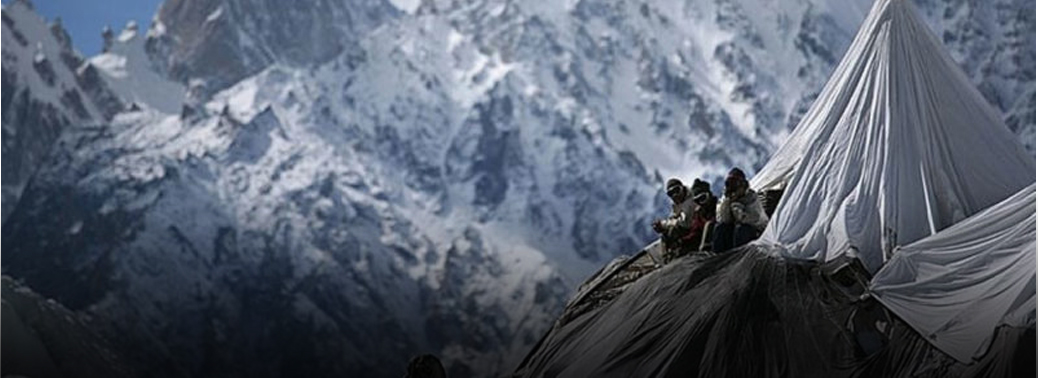D-day for Azhar’s UNSC listing: all eyes on China
13, Mar 2019

If China decides not to place a hold on the listing of Masood Azhar at the United Nations Security Council and the Jaish e Mohammad (JeM) chief is listed as a terrorist sanctioned by the 1267 Al Qaeda Committee, it would be a major break from the past two decades.
Since 2001, when the JeM was first listed as an entity, to 2008 in the wake of the 26/11 attacks in Mumbai, to 2016, after the Pathankot airbase attack, the UNSC has failed to put Azhar on its list, mainly due to opposition from China.
China has in the past said it doesn’t have enough information to list Masood Azhar, despite the fact that on each occasion India have provided more information of his links to terror attacks.
Significantly, when the JeM was first listed on October 17, 2001, its listing actually named Masood Azhar as its founder, but didn’t include Azhar as a “designated individual”. According to the listing, Azhar formed [JeM] with support from Osama Bin Laden, the Taliban and several other extremist organisations, and the organisation was listed after it claimed responsibility for the attack on the Jammu & Kashmir Assembly building.
However, despite being named, Azhar escaped being targeted for sanctions, which under the UNSC 1267 rules means he would not be allowed to travel, access weapons or funding.
War footing
After the Mumbai attacks of November 26, 2008, India decided to take up the issue on a war footing, and the effort met with remarkably similar responses as the more recent attempts have.
In March 2009, India decided to request the designation of Azhar, along with two Lashkar-e-Toiba (LeT) operatives Abdur Rahman Makki and Azam Cheema, but on April 28 China put a hold on the listings, requesting additional information. This was in contrast to China’s support for the designation of Hafiz Saeed, Zaki Ur Rahman Lakhvi and other LeT leaders Arif Qasmani and Yahya Mujahid just a few months earlier.
After the Pathankot airbase attack in January 2016, India revived its move to list Azhar, with the same result: China first placed a technical hold, citing “inadequate information” and followed it with a veto in December. In 2017 and 2018, France led the effort supported by the U.S. and U.K. to try and list Azhar, with no shift in China’s position. If China doesn’t raise an objection by the deadline on March 13, it will be a marked departure from the past. If, however, it does raise a technical hold on the listing, it would only be following an old and well-worn script.
What is the 1267 Committee?
In 1999, the U.N. had set up an al-Qaeda/Taliban sanctions committee (UNSCR 1267) to impose strictures on anyone dealing with the Taliban and Osama bin Laden.
In 2011, the UNSC made it simply the al-Qaeda sanctions committee, separating the Taliban to facilitate talks by delisting Taliban leaders being engaged.
In December 2015, the UNSC made a further shift by renaming it ISIL (Da’esh) and al-Qaeda Sanctions Committee (UNSCR/2253).
It took two years and the 9/11 attacks for the JeM to be designated a terror group by the UNSC 1267 sanctions committee in 2001.
In September 2016, India asked the 1267 committee to consider banning of Masood Azhar, the head of the Jaish-e-Mohammed, which was already a banned entity.
Who is Masood Azhar?
Masood Azhar was responsible for the January 2, 2016 attack on Pathankot.
He is a Pakistani national who was released by India in 1999 in return for hostages who had been hijacked.
Azhar was seen live across televisions worldwide. On December 31, 1999, he was exchanged for hostages on the Kandahar tarmac after the hijack of the Nepal-New Delhi Indian Airlines Flight 814 (IC-814).
He has recorded this in his own book From Imprisonment to Freedom, details of the terror plot to hijack the plane to Kandahar, and of links to the Taliban who pushed Indian negotiators on the ground (including current National Security Adviser Ajit Doval) into effecting his release.
He openly spoke of meeting Osama bin Laden in Afghanistan, travelling to Somalia to help recruit for al-Qaeda, and his loyalty to Taliban chief Mullah Omar, whom he described as his “beloved Amir-ul-Momineen (leader of the faithful)”.
Among the P5, the U.S., U.K. and France co-sponsored India’s resolution against Azhar, China vetoed it.






